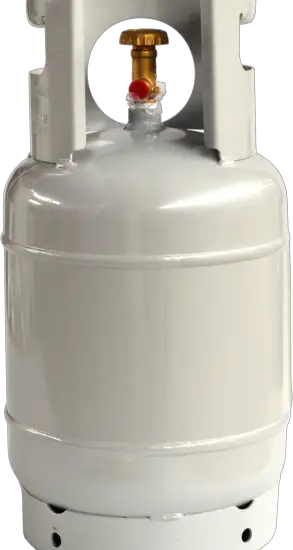Refrigerant poisoning is a silent but serious threat that’s often overlooked. It can creep into your life unexpectedly, lurking in everyday appliances like your fridge or air conditioner. From immediate symptoms to preventive measures, we’ve got it all covered in this comprehensive guide.

Table of Contents
Understanding Refrigerant Poisoning
What is Refrigerant Poisoning?
Refrigerant poisoning isn’t just a fancy term. It’s a real danger that happens when our bodies get an unhealthy dose of the chemicals used in cooling appliances. Picture this, you’re minding your own business when a tiny leak in your AC unit starts releasing these harmful chemicals into your space. Doesn’t sound too good, right?
Common Sources of Refrigerants
Most refrigerants are peaceful residents of your cooling appliances, like air conditioners, refrigerators, or freezers. But when they start playing up – perhaps due to a malfunction or leak – they can become dangerous intruders in your home or workplace.
How does Refrigerant Poisoning Happen?
How exactly do these refrigerants break out of their confines and cause harm? Simple, through inhalation, skin contact, and, albeit rarely, ingestion. Each route presents its own set of problems.
Effects of Inhalation
Imagine breathing in something that’s not supposed to be in your lungs. Uncomfortable, right? Prolonged inhalation of refrigerants can lead to damage in your respiratory system. It’s like throwing a wrench into a smoothly running machine.
Dangers of Skin Contact
Ever felt a splash of cold water on a winter day? That’s almost pleasant compared to the sensation of a refrigerant coming in contact with your skin. It can cause serious burns and even lead to systemic poisoning.
Risks Associated with Ingestion
The chances of you ingesting a refrigerant are slim, but the consequences are far from negligible. It’s like a nasty surprise that can lead to severe internal damages.
For more articles on refrigerants, click here: Articles on Refrigerants: The Ultimate Guide to Understanding Them
Recognizing Symptoms of Refrigerant Poisoning
Early Signs of Poisoning
Refrigerant poisoning often announces its arrival with symptoms like coughing, dizziness, or nausea. It’s as if your body is sending out an SOS.
Advanced Symptoms
If the early symptoms are like a soft whisper, the advanced symptoms are a full-blown shout. From irregular heartbeats to seizures and even unconsciousness, your body is practically screaming for help.
Emergency Response and First Aid
Immediate Steps to Take
Time is of the essence if someone is suspected of refrigerant poisoning. It’s a bit like a race against time. Calling emergency services and moving the person away from the source are steps you can’t afford to miss.
First Aid Measures
While waiting for medical help, there are a few basic first aid measures that can make a world of difference. It’s like being the calm amidst the storm.
Treatment of Refrigerant Poisoning
Medical Diagnosis
When it comes to diagnosing refrigerant poisoning, doctors have a whole array of tools at their disposal. Tests and examinations can help them peek into your body to get a better understanding of the situation.
Treatment Options
From oxygen therapy to medications, there’s a range of treatment options for refrigerant poisoning. It’s like having a tailor-made plan to get you back on your feet.
Prevention of Refrigerant Poisoning
Safe Handling of Refrigerants
Safety first, right? Properly handling refrigerants, including using protective gear and ensuring proper ventilation, can make a world of difference in preventing poisoning.
Importance of Regular Maintenance
Regular maintenance of cooling systems isn’t just for efficient performance, it’s also crucial for your safety. It’s a bit like a regular check-up for your appliances, to make sure they’re not about to cause you harm.
Conclusion
Understanding, recognizing, and preventing refrigerant poisoning is something we all need to take seriously. If you suspect something’s off, don’t hesitate to get help. Remember, when it comes to your health, it’s always better to be safe than sorry.
